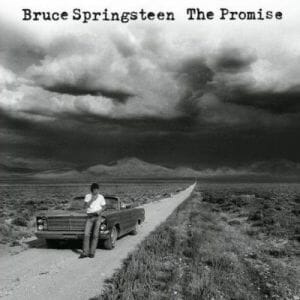Bruce Springsteen: The Promise

The poignant first strike of the piano on “Racing in the Street” immediately made my hands and shoulders tense. It was the same involuntary reaction I get when I notice the faint call of a train whistle in the distance—that quiet anticipation for the beast of a machine climbing over the hill, a surging cacophony that will soon surround me like the smoke pouring from its innards.
The joy of The Promise: The Lost Sessions of Darkness on the Edge of Town for any serious Boss employee is the notable twinkle of notions that would later grow into classic rock staples. This is Bruce Springsteen exploring his musical ideas immediately following the monstrous success of Born to Run. He’d just become a star and wasn’t so sure he liked it—you can hear the struggle to solidify himself as more than a one hit wonder in each bellow.
Two tracks that play in succession on the disc, “Fire” and “Spanish Eyes,” are both early incarnations of Born in the U.S.A.’s “I’m on Fire.” “Fire” actually features the chorus “I’m on fire,” but the similarities end there. “Spanish Eyes” gets a lot closer to the U.S.A. hit, starting slowly and never picking up steam. About 30 seconds into the song, the shakers creep out and the piano turns classy (but still slow) calypso.
-

-

-

-

-

-

-

-

-

-

-

-

-

-

-

-

-

-

-

-

-

-

-

-

-

-

-

-

-

-

-

-

-

-

-

-

-

-

-

-








































